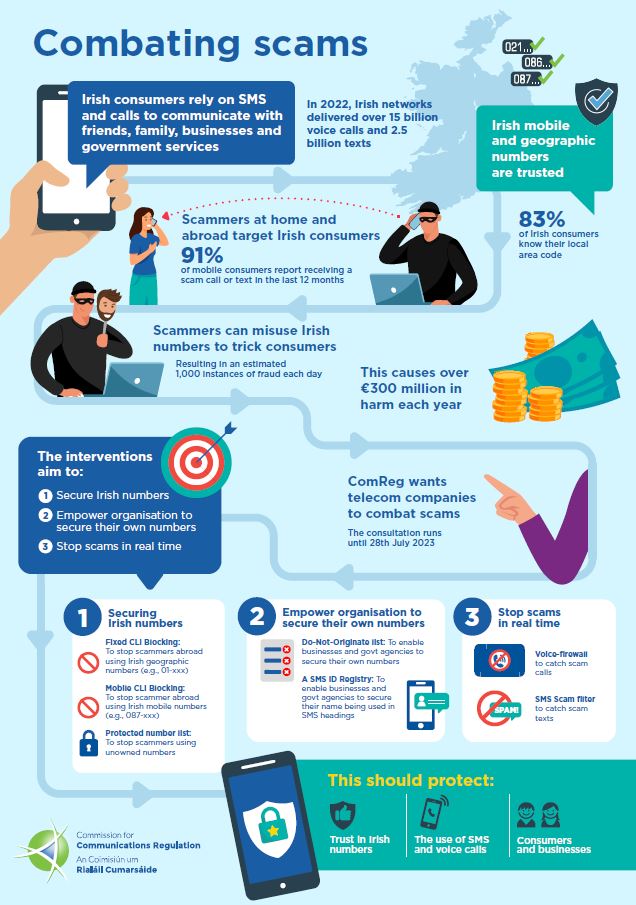
This time of year can mean an increase in scam text messages being sent to consumers.
In the run up to Christmas, we advise consumers to exercise caution with a potential increase in the number of scam calls and texts. Scammers may intensify efforts to impersonate delivery services, government agencies and other businesses.
Some of the warning signs to look out for are that the sender may be pretending to be from:
- your parcel delivery provider
- your bank or utility provider
- someone who you know personally.
We advise you to be vigilant and wary of these kinds of messages, especially from a number you are not familiar with, even if it seems like an Irish number.
- Be cautious of unsolicited text messages from unknown senders
- Do not click on a link
- Don’t share personal information. Legitimate texts never ask you for personal or financial information
- DO NOT RESPOND
- Be familiar with how businesses and services you engage with will contact you – visit their website to find out or ask them how they are likely to contact you
- Verify sender details by visiting the company’s official website or in the case of your bank, ring the number on the back of your bank card. NEVER use the contact details provided in the text.
Some tips to help you:
We have further information on scam calls and texts and what to do if you receive a suspicious messages, to help you protect yourself from being scammed.
What you can do:
If you believe you are a victim of fraud, immediately contact your bank and report to your local Garda Station.
What we are doing:
To help protect customers from scam calls and messages we are also working with the telecoms industry to put in place safeguards to make it harder for fraudulent calls and texts to be sent to you. For further information, visit our nuisance communications website page.
How this is helping:
With the support of the telecommunications industry over 5 million fraudulent calls have been blocked already. In recent weeks, telecommunication operators have reported an increase in the number of blocked scam calls, with over 2.5 million scam calls blocked in November alone. ComReg consulted on interventions by Telecoms network operators to reduce the harm by implementing several technical interventions to combat scam calls and texts.
We have published a Best Practice Guide for Businesses to help protect their customers from scam calls and messages. The guide contains tips for businesses to help their customers identify genuine messages from them.
Some tips we are giving businesses, to help them protect you from scams:
- Reminding businesses to never ask you for your personal details by text or email
- Recommending that businesses publish their contact details and describe on their website how they will contact you, as their customer (for example, if they are likely to contact you by phone, email or text)
- Advising that businesses explain to how you can verify that communications are genuinely from them
- Identifying numbers that only receive calls and add to the Do Not Originate (DNO) list. This helps prevent scammers using the numbers to make calls. Details on the DNO service at comreg.ie/dno.
Unfortunately, scam calls and texts can be difficult to identify. If a call or text message claims to be from a company you do business with, it is best not to engage with the caller or message the sender until you verify that the contact is legitimate. Instead, end the call, look up their official contact details and contact them back to verify if the call is legitimate.







